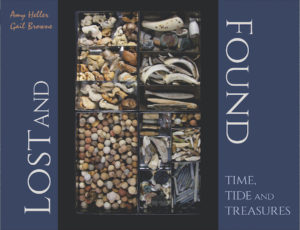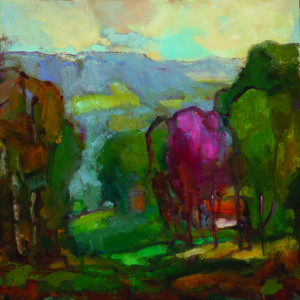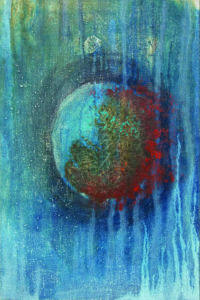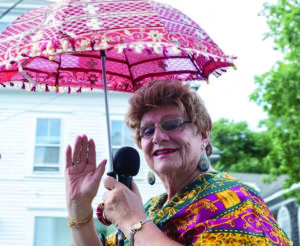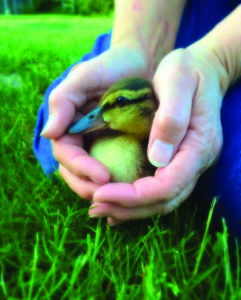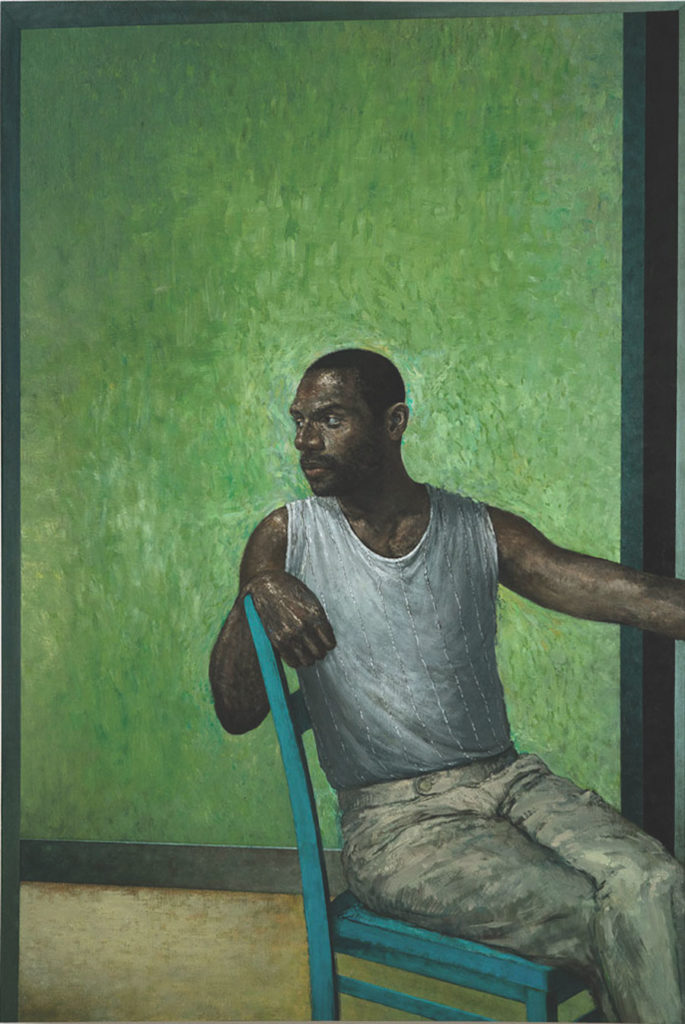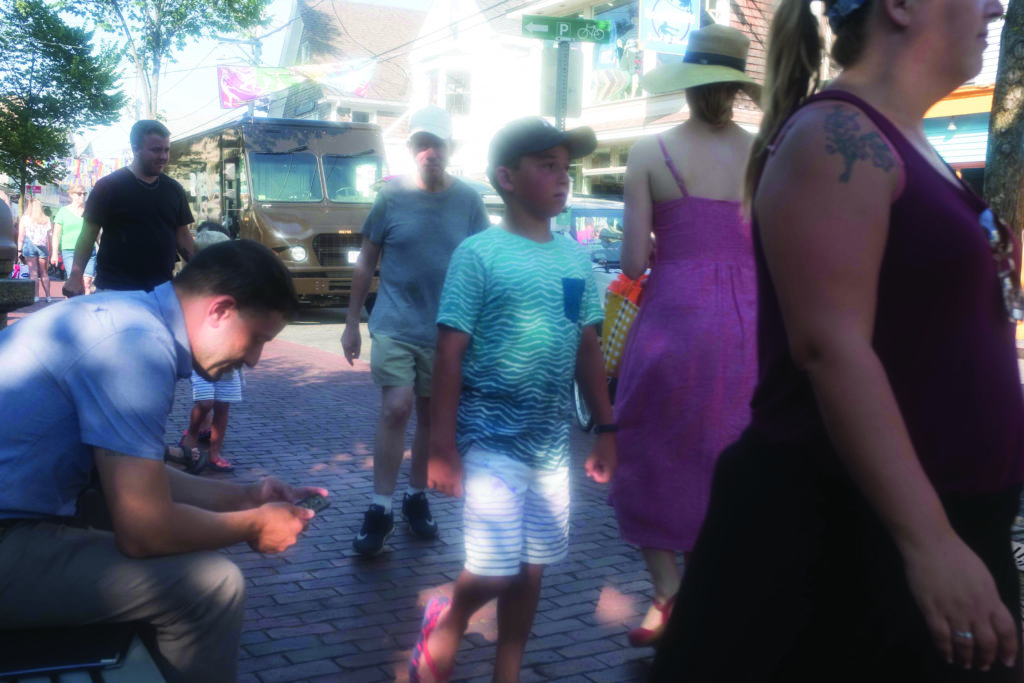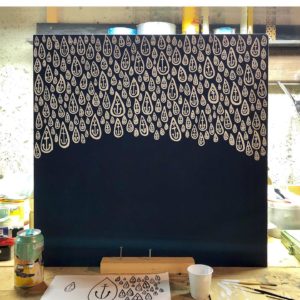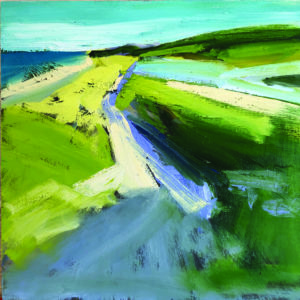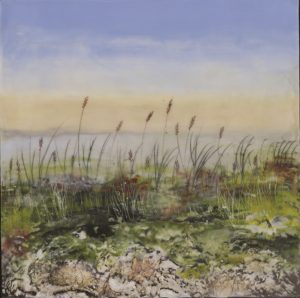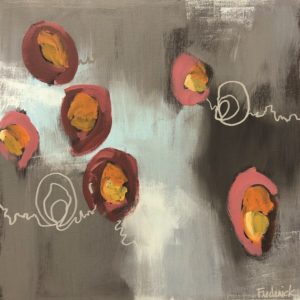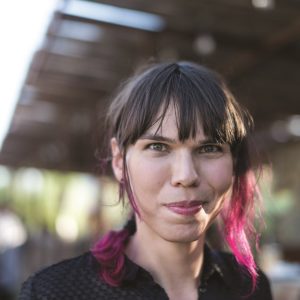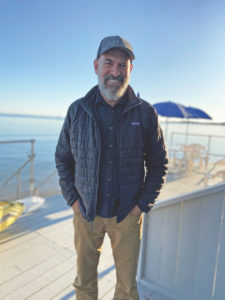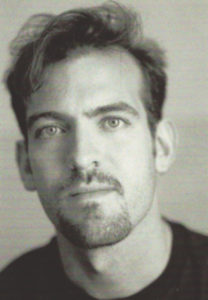The moment Kelle Groom opens the gray door to her second-floor Brewster Street apartment, a hold-onto-your-hats breeze marking the change in seasons sneaks through. Poetry collections by Nick Flynn, Marie Howe, and Mary Oliver are stacked within arm’s reach of a cluttered desk. Marian Roth’s image of cottages on Route 6A hangs on the wall. Groom, whose fluency is expressed in fiction, poetry, and memoir, as well as in conversation, fills her home with the poets and artists whose work nourishes her own.
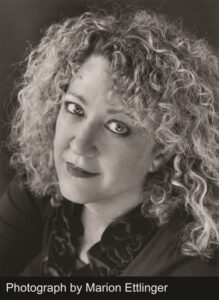
Home is a motif in her new book, How to Live: A Memoir-in-Essays, out this month from Tupelo Press. Groom will be discussing the book and the question of home in a conversation with John Bonanni at East End Books on Tuesday, Oct. 17.
How to Live covers four years of travel, from Santa Cruz to the Outer Cape, between 2010 and 2014. Provincetown figures in about a third of the stories, in which Groom confronts fears, terrors, and yearnings with uncompromising honesty. Nothing is hidden: there are roller-coaster years that hurl Groom from alcoholism to sobriety, boyfriends who abandoned her, a party ending in a rape, and the aftermath of the death in 1982 of her son Tommy from leukemia before he was two. Embedded throughout the book is the question of how to keep living as Tommy’s mother, even decades after his passing.
Chapters skip back and forth in time. Always hovering: the question of how to live an uncertain creative life. Despite numerous obstacles, including lack of reliable transportation and a marginal income, Groom’s resilience in building a stable writer’s life is formidable.
In the book, Groom recalls a wintry day during a hard, uncertain stretch when she met Provincetown historian George Bryant at the United Methodist Church soup kitchen. The encounter was straightforward: “Welcome to Provincetown,” Bryant said. And in that moment, she felt the town’s embrace.
Groom first inhabited her Brewster Street apartment when she began work as a Fine Arts Work Center staff member and was there last summer when she was a writer in residence and curator of the summer program. She worked as FAWC’s summer program director from 2015 to 2022, introducing a poetry festival and attracting a more diverse faculty. She’s the former guest poetry editor and still a frequent contributor to Provincetown Arts magazine.
She recently completed a poetry manuscript entitled Far Land. The title honors Far Land Provisions, the town’s year-round soup and sandwich emporium, right around the corner from Brewster Street and “a great place to have a conversation, especially in winter,” Groom says. In the poem “Natalie Said,” as two friends talk about climate change, images move back and forth between Provincetown and Florida: “It was November in Far Land/ it was the harbor & light house/ but you can barely see it/ beyond one boat left under the clouds.”
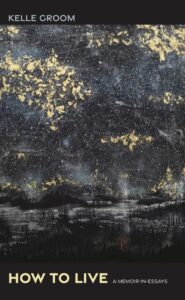
Currently, Groom lives in New Smyrna Beach, Fla. where she is director of communications and foundation relations for the Atlantic Center for the Arts.
Groom describes facing “an insistent question: what is home?” Of the 28 essays in How to Live, almost all have place names in their titles. The essays are arranged as linked reflections and memories.
In one, Groom describes the winter of 2013, when she lived in a top-floor apartment with a water view on Commercial Street in the West End. The apartment had once been Hans Hofmann’s studio; the essay is titled “Hans Hofmann House.”
“I used to get lost leaving Provincetown at night and always wound up somewhere I didn’t know, a small strip of land with dark wind, with ocean all around,” she writes in that essay. “It was always the same place of darkness and ocean where I’d get lost and lifted up. Where I’d let the road show me where to go.”
This spills into “You Grow in a Meadow,” in which Groom discovers that the house previously owned by painter Mary Hackett is empty and needs repair. She writes of just having returned from Hatches Harbor, a favorite spot for “townies.”
In “Tide Lands,” Groom describes in scientific and personal detail coming across a buried ship in Hatches Harbor, partially visible when the tide goes out. She reaches in and touches the solid “cradle edge” of the vessel. “The hold is where I stand, planks like hands in prayer or cupping water,” she writes.
Groom writes of showing her photographs to her friend Larry Collins, painter, photographer, and Vietnam veteran. “All of us who are solitary see things in ways others don’t see,” he says. “Not hallucinations. But secret things.”
The essay “Smallpox House” describes the visit the two of them made to Provincetown’s tiny smallpox cemetery by following an overgrown trail off Route 6. After slipping and sliding on wet leaves, they come to a smattering of white stones marked with numbers. “As we lay the white flowers down,” — miniature white carnations from the Stop & Shop — “we both touch each stone, as if touching a cheek, the face of someone ill.”
Groom leaves the reader in Collins’s studio above the Post Office: “In front of us, an open window on the town and tower. The names of our dead in the air like a heaven.” At the very end of the book, Groom reaches a little into her future, toward her life to come in Provincetown.
How to Live is dedicated to Collins. “The thing that really first connected us was our grief,” Groom says. “It’s something I try to integrate into my life.” How to Live opens a path to hope.
Writing a memoir was easier when she was younger, Groom says. “I was so blind to many things then.” This time, though, with what she now understands, she says, “I was able to both see myself fully and, as a character, to offer compassion, the same compassion I would offer anyone.”
Healing Light
The event: Book launch for Kelle Groom’s How to Live: A Memoir-in-Essays
The time: Tuesday, Oct. 17, 6 p.m.
The place: East End Books, 389 Commercial St., Provincetown
The cost: $5, tickets at eastendbooksptown.com
Editor’s note: An earlier version of this article, published in print on Oct. 12, gave the wrong date for the book launch. It is Tuesday, Oct. 17, not Sunday, Oct. 15.




